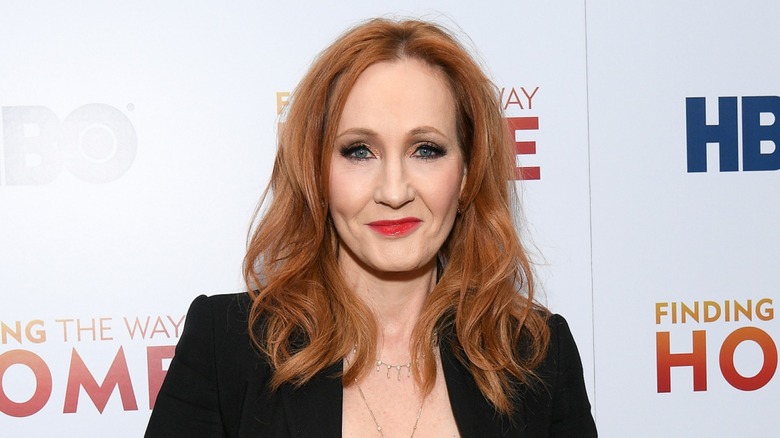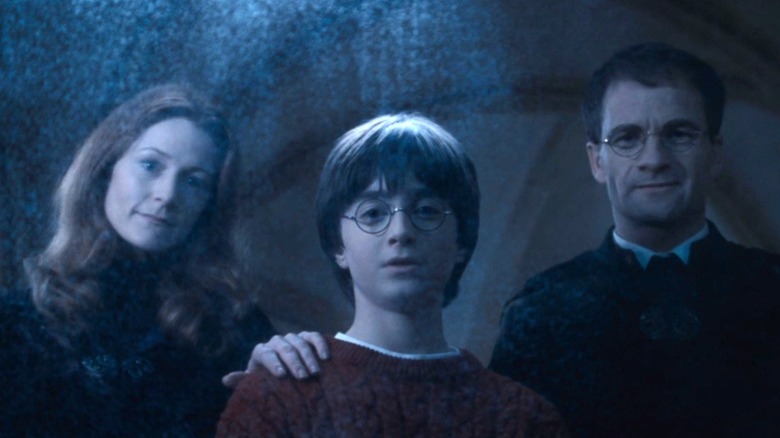Harry Potter's Deathly Hallows Symbol Is Connected To The Death Of J.K. Rowling's Mom
Since 2007, which saw the release of J.K. Rowling's "Harry Potter and the Deathly Hallows," the triangular Deathly Hallows symbol has been a staple icon among fans. There's jewelry and other merch shaped like it, as well as countless tattoos forever on the skin of Potterheads.
However, many might not realize the deeper, accidental connection that the symbol has to Rowling's own life. In the BBC documentary "Harry Potter: A History of Magic," Rowling recalled the night she was sketching various aspects of the wizarding world while watching the 1975 classic, "The Man Who Would Be King." While working, she received the devastating call that her mother had passed away.
It wasn't until two decades later that she realized a strong similarity between the Deathly Hallows symbol and the masonic symbol that keeps appearing throughout the movie. In fact, a tag emblazoned with the latter — a triangular shape with a round eye in the center — is given to Danny Dravot (Sean Connery), who meets a brutal demise after pretending to be a god.
Rowling said, "When I saw the movie again and saw the masonic symbol, I went cold all over and I thought, 'Is that why the Hallows symbol is what it is?' And I've got a feeling that, on some deep level, they are connected." In fact, the entire "Harry Potter" series is connected to the death of her mom.
Harry Potter would've been a different story without the death of J.K. Rowling's mom
J.K. Rowling's mother died of multiple sclerosis when the author was 20 years old, a little over a decade before "Harry Potter" was published. For Rowling, this loss directly influenced the story, even beyond her incorporation of the masonic symbol from that heartbreaking evening watching "The Man Who Would Be King." Beneath happy layers of charms and chocolate frogs is a deep sense of loss. To start, Harry is orphaned after Voldemort murders his parents. As the novels progress and become darker, he only experiences more death, from Dobby and Albus Dumbledore to Cedric Diggory and his secret protector, Severus Snape.
As Rowling said in the BBC documentary "Harry Potter: A History of Magic," "If my mother hadn't died, I think the stories would be utterly different and not what they are." In a separate interview with Oprah Winfrey, she revealed, "If she hadn't died, I don't think it's too strong to say that there wouldn't be 'Harry Potter.' The books are what they are because she died."
Ultimately, the series ended up becoming a way for Rowling to cope with her mother's death. Just as she was able to continue on, finding success in the literary world, so does Harry, who finds a chosen family with Ron, Hermione, and the rest of his Hogwarts friends.

